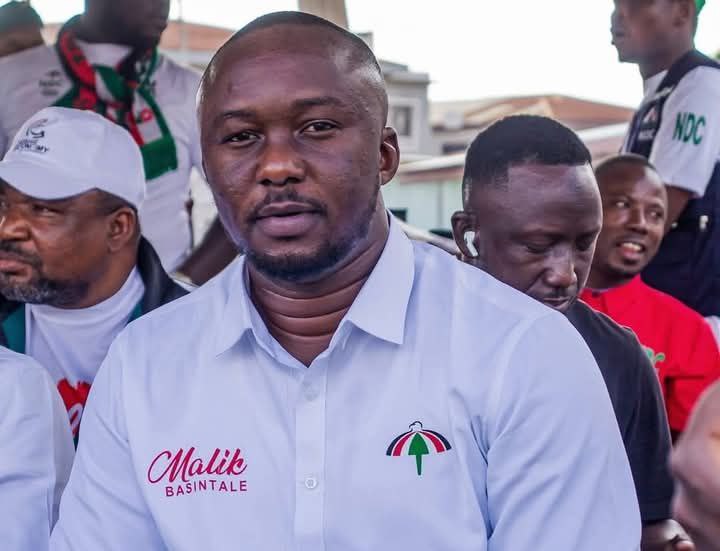In a fiery and unrelenting open letter addressed to the newly appointed CEO of the Youth Employment Agency (YEA), Malik Basintale, investigative journalist Manasseh Azure Awuni has sounded the alarm on what he describes as a “brazen theft” of public funds through a longstanding, controversial contract with waste management giant Zoomlion Ghana Limited.
The letter written on behalf of Ghana’s unemployed and underpaid youth urges Basintale to resist any attempt to renew a sanitation contract with Zoomlion that, according to Manasseh, siphons GHS600 from each cleaner’s GHS850 monthly allocation, leaving the actual sweepers with a humiliating GHS250 salary.
“Don’t resurrect that deal, please,” Manasseh pleaded in the opening lines. “Whoever signs a new contract with Zoomlion is either a thief or a fool.”
THE NUMBERS THAT DON’T ADD UP
The core of Manasseh’s claims lies in what he calls a “slave-wage model” disguised as a public sanitation solution. Under the current arrangement, Zoomlion pockets over 70% of government funds per worker, with no insurance, transportation, or benefits allocated to the labourers who brave dangerous conditions to clean Ghana’s filth. Even worse, Manasseh reveals that many of these cleaners have not received wages in over a year, despite consistent payments from the government to Zoomlion.
The accusations get murkier. Despite claiming to manage over 45,000 sweepers nationwide, Zoomlion has reportedly never produced verifiable data or payroll evidence to support this figure. In 2018, a headcount by then-YEA CEO Justin Frimpong Kodua revealed the actual number was significantly lower but nothing changed. Payments continued. The state, according to Manasseh, is being “robbed blind.”
ZOOMLION INVISIBLE WORKFORCE?
In one damning example, Accra Metropolitan Assembly (AMA) CEO Elizabeth Sackey reportedly wrote to the YEA in 2022 demanding to know the whereabouts of sweepers Zoomlion was paid to deploy. Her predecessor also raised the same concerns. But the shocker? The YEA itself had no records of who Zoomlion was supposedly managing.
Minutes from an October 13, 2022, YEA board meeting reportedly captured the then-CEO Kofi Agyapong admitting that management lacked any data to confirm if the sweepers even existed. Yet, payments continued.
“If someone’s work is worth GHS250 a month, why must the supervisor earn GHS600 to ‘manage’ that worker?” Manasseh questioned.
HISTORY OF SCANDAL — FROM MAHAMA TO AKUFO-ADDO
Manasseh traces the scandal back over a decade. His 2013 GYEEDA investigation first exposed the rot. But neither the NDC under John Mahama nor the NPP under Nana Akufo-Addo acted decisively.
Even more concerning, Manasseh alleges that attempts by previous YEA CEOs to terminate the contract were thwarted by political interference from “top forces,” including presidential circles. He referenced board interference, citing individuals such as Anita Kusi Boateng wife of the controversial clergyman Rev. Victor Kusi Boateng as among those who pushed for the contract’s renewal.
“President Mahama knows about this theft… The Akufo-Addo administration escalated it. If the NDC returns to power and signs the same contract, then what moral authority do they have?” he wrote.
A CALL TO MALIK BASINTALE
Now with the contract expired since September 2024, all eyes are on Malik Basintale the young, newly appointed YEA CEO. Manasseh urges him not to bow to pressure or political loyalty, warning that history will judge him for either restoring sanity or perpetuating a theft “that stinks to the heavens.”
He advised that assemblies themselves should manage sanitation directly, pointing out that their own departments have more qualified personnel than Zoomlion’s opaque “district officers.”
“Don’t push this thievery, Mr. Basintale. The poor sweepers deserve dignity, not crumbs. Ghana deserves transparency, not daylight robbery.”
THE BIGGER QUESTION
Manasseh’s revelations raise broader questions about Ghana’s procurement systems, political accountability, and how deeply entrenched crony capitalism has become in national sanitation policy. If the figures are true, Zoomlion has earned billions over the years through unverified work while Ghana’s streets remain filthy, and its cleaners unpaid.
This is not just about Zoomlion. It’s about how Ghana’s wealth is managed, and whose pockets it ends up in.
Have documents or evidence related to this issue? Reach out to the Amnewsworld Investigations Desk securely via reporter@amnewsworld.com



